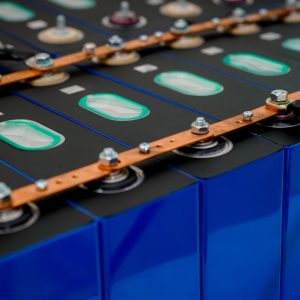Understanding the Data Science Behind Efficient Electric Vehicle Functioning
The automobile industry has seen a transformational movement towards electric vehicles (EVs) as a sustainable alternative to traditional internal combustion engine vehicles during the last decade. EVs have emerged as a possible response to the growing emphasis on lowering carbon emissions and mitigating climate change. The success of electric cars, on the other hand, is dependent not only on their environmental friendliness but also on their efficient operation and performance. Data science is essential in optimizing different parts of electric car technology behind the scenes. In this blog, we will look at the important data science applications that enable the efficient operation of electric cars, as well as their real-world ramifications and potential for expansion in the future.
Battery Management Systems (BMS)
The battery pack at the center of every electric vehicle defines its driving range, performance, and general dependability. The Battery Management System (BMS) is an important component that guarantees the battery’s safe and efficient operation. BMS can gather and analyze real-time data on cell voltage, temperature, current, and general health using data science and sophisticated analytics. Machine learning techniques are used to forecast battery performance, track degradation, and optimize charging and discharging operations. By exploiting these data-driven insights, BMS can avoid overcharging, minimize thermal runaway hazards, and extend battery life, hence improving EV safety and longevity.


Range Prediction and Optimization
One of the main concerns among potential EV buyers has been range anxiety. Data science comes to the rescue by analyzing a variety of parameters that influence a vehicle’s range, including driving behaviors, topography, weather conditions, and battery quality. EV manufacturers can provide precise range projections to drivers by gathering data from thousands of electric vehicles and integrating it with real-time GPS. This not only boosts user confidence but also allows for better trip planning because they know exactly how far they can go on a single charge. Furthermore, data-driven insights allow for optimal route planning and energy consumption methods, maximizing the vehicle’s range and minimizing energy waste.
Charging Infrastructure and Smart Grids
The provision of reliable and common charging infrastructure is critical for the widespread adoption of electric vehicles. Based on previous usage trends and predicted demand, data science plays a critical role in determining the best sites for charging stations. Policymakers and industry stakeholders may utilize data analytics to strategically locate charging stations to match the demands of electric vehicle customers, decreasing range anxiety and enabling long-distance travel. Furthermore, data science makes it possible to integrate EVs into smart grids. Electric vehicles may participate in demand response programs by analyzing real-time energy use trends and demand changes. Electric vehicles may thus function as flexible energy storage units, charging during off-peak hours and discharging during high-demand periods. This not only aids in grid balancing but also supports the use of renewable energy sources, reducing the overall carbon footprint of the transportation sector.


Autonomous Driving and EVs
The emergence of self-driving technology opens up new avenues for electric automobiles. Data science algorithms play an important role in analyzing massive volumes of data generated by sensors, cameras, and Lidar devices. EVs can precisely assess their surroundings and make real-time judgments by using machine learning models, improving safety and efficiency on the road. Data science is also important in optimizing the energy use of self-driving cars. To select the most energy-efficient route, algorithms can analyze traffic patterns, road conditions, and the present status of the vehicle. This not only increases the driving range of EVs but also encourages a more efficient flow of traffic, contributing to overall energy savings.
Predictive Maintenance
Maintenance expenses and downtime are important factors to consider for any vehicle owner, and EVs are no different. Predictive maintenance enabled by data science is a major changer in the car industry. Manufacturers can detect and avoid possible breakdowns by gathering data from numerous sensors and components within the vehicle.
These data are analyzed by machine learning algorithms to find trends and anomalies, allowing maintenance plans to be optimized for each specific vehicle. This data-driven strategy reduces unscheduled maintenance, reduces downtime, and improves EV users’ overall driving


Vehicle-to-Grid (V2G) Technology
Data science is critical to the integration of Vehicle-to-Grid (V2G) technology, which allows electric cars to not only consume but also send energy back into the grid during peak demand periods. This two-way connection necessitates real-time data analysis and coordination, both of which data science is capable of handling efficiently. Electric vehicles are transformed into valuable grid assets via V2G technology. EVs may give stored energy back to the grid during periods of high demand, helping to stabilize the power supply and reducing the need for new fossil-fuel-based power generation. Furthermore, EV owners can profit financially from engaging in demand response programs, which creates incentives for a larger number of customers to embrace electric vehicles.
Electric cars are an important step towards a greener and more sustainable transportation future. Their effective operation and broad acceptance, however, are strongly reliant on data science applications. Data-driven insights are reshaping the electric car environment, from battery management systems and range prediction to charging infrastructure optimization and V2G technologies. We should expect additional innovations in electric car technology as data science advances, making them more accessible, dependable, and environmentally beneficial. We can create a cleaner, smarter, and more sustainable transportation environment by understanding and harnessing the critical role data science plays in the operation of electric cars. Data science and electric cars, when combined, have the ability to transform how we move and drastically cut our carbon impact.







